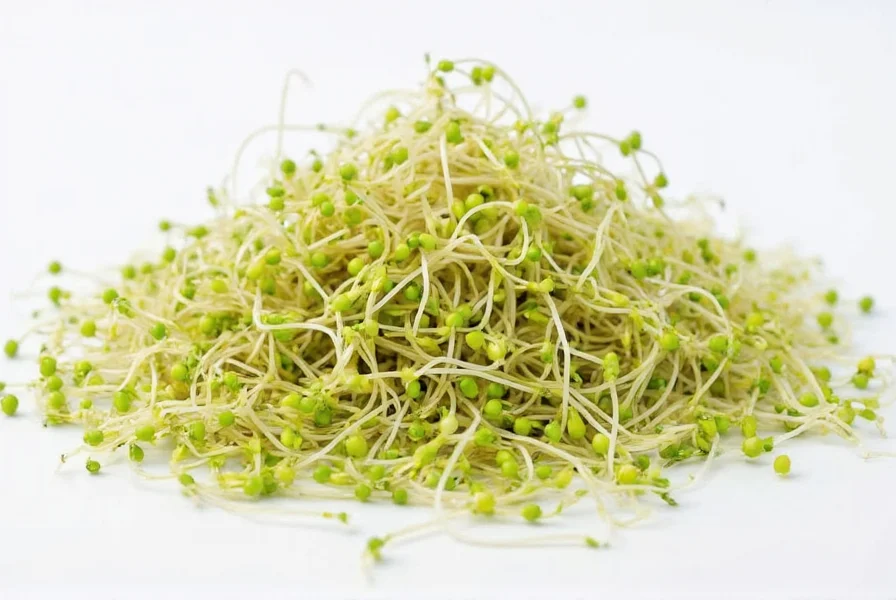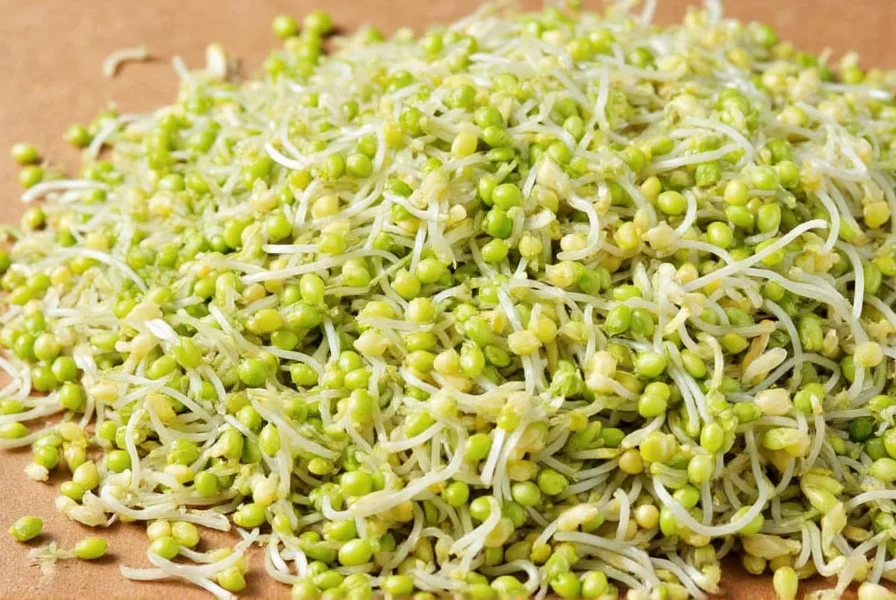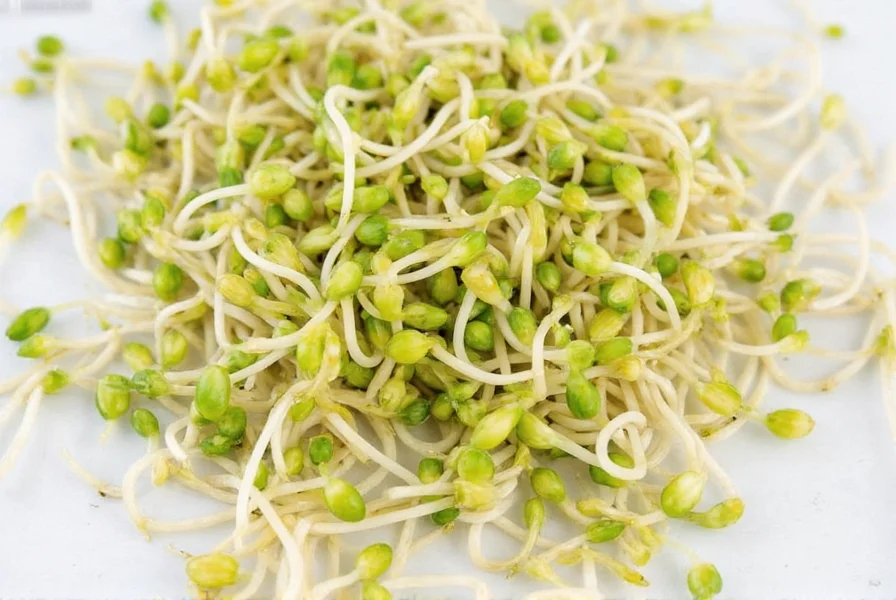Fenugreek sprouts represent a nutritional powerhouse in the world of edible sprouts, delivering exceptional health benefits while maintaining culinary versatility. These young shoots emerge from fenugreek seeds, which have been used in traditional medicine systems across Asia and the Mediterranean for centuries. Unlike mature fenugreek seeds that feature prominently in spice blends, the sprouted version offers a milder flavor profile with a slightly sweet, nutty taste that works well in various dishes without overwhelming other ingredients.
Nutritional Profile of Fenugreek Sprouts
During the sprouting process, fenugreek seeds undergo significant biochemical changes that dramatically increase their nutritional value. The sprouting process activates enzymes that break down complex compounds into more bioavailable forms, making nutrients easier for your body to absorb. Fenugreek sprouts contain higher concentrations of essential amino acids, vitamins, and minerals compared to their unsprouted counterparts.
| Nutrient | Per 100g of Fenugreek Sprouts | Key Health Benefits |
|---|---|---|
| Protein | 4.2g | Supports muscle maintenance and tissue repair |
| Dietary Fiber | 3.8g | Enhances digestive health and regulates blood sugar |
| Vitamin C | 22mg | Boosts immune function and acts as antioxidant |
| Vitamin K | 31mcg | Supports blood clotting and bone health |
| Iron | 2.5mg | Prevents anemia and supports oxygen transport |
Health Benefits Supported by Research
Scientific studies have validated many traditional claims about fenugreek sprouts. Research published in the Journal of Food Science and Technology demonstrated that fenugreek sprouts significantly improve insulin sensitivity, making them particularly valuable for individuals managing type 2 diabetes. The high fiber content works synergistically with unique compounds like 4-hydroxyisoleucine to slow carbohydrate absorption and regulate blood glucose levels.
Another compelling benefit involves digestive health. The combination of soluble and insoluble fiber in fenugreek sprouts promotes regular bowel movements while feeding beneficial gut bacteria. A 2022 study in Nutrients journal found that regular consumption of fenugreek sprouts increased microbial diversity in the gut microbiome, which correlates with improved immune function and reduced inflammation.
How to Grow Fenugreek Sprouts at Home
Learning how to grow fenugreek sprouts at home requires minimal equipment and effort. Start with high-quality organic fenugreek seeds, as conventional seeds may have been treated with chemicals that inhibit sprouting. The basic process involves:
- Soak 2-3 tablespoons of seeds in filtered water for 8-12 hours
- Drain and rinse thoroughly, then place in a sprouting jar or container with drainage
- Rinse and drain 2-3 times daily to prevent mold growth
- Keep in indirect light after the second day to encourage chlorophyll development
- Harvest when sprouts reach 1-2 inches with small green leaves (typically 3-5 days)
For optimal fenugreek sprout preparation method, continue rinsing after harvest to remove any remaining seed hulls, which can cause digestive discomfort for some people. Store harvested sprouts in an airtight container in the refrigerator for up to 5 days.

Culinary Applications and Recipe Ideas
Fenugreek sprouts vs mung bean sprouts offers distinct flavor advantages in certain dishes. While mung bean sprouts have a more neutral taste, fenugreek sprouts contribute a subtle nuttiness that enhances salads, sandwiches, and wraps. Their texture holds up better than many other sprouts when lightly cooked, making them ideal for stir-fries and soups.
For creative fenugreek sprout recipe ideas, try adding them to:
- Indian-style sprout salads with lemon juice, chaat masala, and fresh cilantro
- Avocado toast topped with sprouts and a sprinkle of black sesame seeds
- Smoothie bowls as a protein-rich topping
- Vegetable curries during the last minute of cooking to preserve nutrients
- Homemade sprouted fenugreek hummus by blending sprouts with chickpeas
Safety Considerations and Potential Side Effects
While fenugreek sprouts are generally safe for most people, certain precautions should be noted. Pregnant women should consult their healthcare provider before consuming fenugreek sprouts regularly, as fenugreek in large amounts may stimulate uterine contractions. Individuals taking blood-thinning medications should monitor their intake due to the vitamin K content.
Proper sprouting technique is crucial for safety. Always use clean equipment and filtered water to prevent bacterial contamination. Discard any sprouts that develop an unpleasant odor, slimy texture, or unusual discoloration. When following proper fenugreek sprout preparation method guidelines, the risk of foodborne illness is minimal.

Comparing Fenugreek Sprouts to Other Common Sprouts
When evaluating fenugreek sprouts vs mung bean sprouts or alfalfa sprouts, several nutritional differences emerge. Fenugreek sprouts contain higher protein content than alfalfa but slightly less than mung beans. Their unique advantage lies in the presence of specific bioactive compounds like diosgenin and trigonelline, which aren't found in significant quantities in other common sprouts.
The health benefits of eating fenugreek sprouts extend beyond basic nutrition. Unlike many other sprouts, fenugreek sprouts maintain their beneficial properties even after light cooking, making them more versatile in the kitchen. Their slightly sweet flavor profile also makes them more approachable for people new to incorporating sprouts into their diet.
Frequently Asked Questions
How long do fenugreek sprouts take to grow?
Fenugreek sprouts typically reach harvest readiness in 3-5 days when sprouted at room temperature with proper rinsing. The seeds first swell during the 8-12 hour soaking period, then develop tails within 24-48 hours, and finally produce small green leaves by day 3-5, indicating they're ready to harvest.
Can I eat fenugreek sprouts raw?
Yes, fenugreek sprouts can be safely consumed raw, which preserves their maximum nutrient content. Raw consumption delivers the highest levels of enzymes and heat-sensitive vitamins. However, ensure proper sprouting hygiene to prevent bacterial contamination, and rinse thoroughly before eating to remove any remaining seed hulls that might cause digestive discomfort.
Do fenugreek sprouts help with blood sugar control?
Research indicates fenugreek sprouts can significantly improve blood sugar regulation. The combination of high fiber content, 4-hydroxyisoleucine, and other bioactive compounds slows carbohydrate digestion and enhances insulin sensitivity. Studies show consuming 30-50g of fenugreek sprouts daily may reduce post-meal blood glucose spikes by 20-30% in individuals with type 2 diabetes.
How should I store harvested fenugreek sprouts?
Store harvested fenugreek sprouts in an airtight container lined with a paper towel to absorb excess moisture. Keep them in the refrigerator's crisper drawer at 34-40°F (1-4°C). Properly stored sprouts will maintain freshness for 4-5 days. Avoid washing before storage, but do rinse thoroughly before consumption. For longer storage, consider freezing them in ice cube trays with water for use in smoothies or soups.
Are fenugreek sprouts safe during pregnancy?
While fenugreek sprouts provide valuable nutrients during pregnancy, women should exercise caution with consumption amounts. Large quantities of fenugreek may stimulate uterine contractions due to its phytoestrogen content. Most healthcare providers recommend limiting intake to small culinary portions (1-2 tablespoons daily) and consulting with a prenatal care provider before making fenugreek sprouts a regular part of the diet during pregnancy.











 浙公网安备
33010002000092号
浙公网安备
33010002000092号 浙B2-20120091-4
浙B2-20120091-4